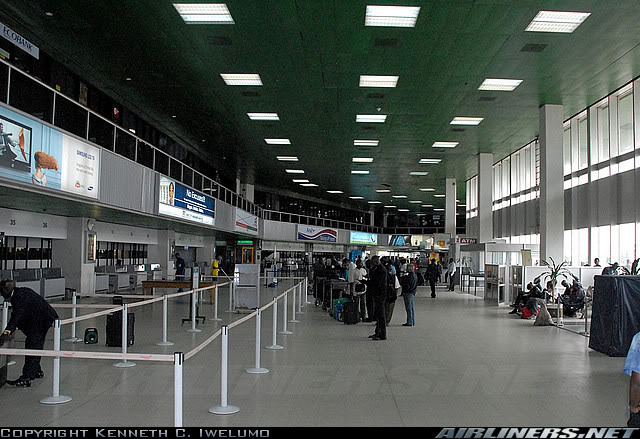- FAAN Tightens Security at Lagos Airport Airside
The Federal Airports Authority of Nigeria (FAAN) has deployed 10 Hilux patrol vehicles to tighten security at the airside of the Murtala Muhammed Airport, Ikeja, Lagos.
The airside is the area of an airport with direct access to the aircraft. Entry to the place is controlled.
In an interview in Lagos, FAAN’s General Manager, Corporate Affairs, Mrs Henrietta Yakubu, said the deployment was part of measures to enhance efficiency and security at the airport.
She said: ”The authority will like to assure airport users and the public that we will continue to upgrade our facilities, processes and procedures, in consonance with our core values of security, safety and comfort.”
In a related development, FAAN has automated the car park at the General Aviation Terminal (GAT) at the Murtala Muhammed Airport (MMA), Lagos.
Mrs Yakubu said within one month of the exercise, it has recorded 68 per cent increase in revenue.
She said the exercise had blocked some of the leakages in the system.
She said with the automation, rowdiness and traffic gridlock caused by the manual collection at the park had disappeared.
Mrs Yakubu said FAAN would review the performance of the exercise by the end of this quarter and make adjustments where necessary. He noted that so far, the new system had been in favour of both FAAN and the public.
FAAN started the automation of the GAT car park on January 8, a development that has eliminated the manual collection of toll which was in place for about two decades.
She said: “FAAN decided to overhaul the whole system and see how we could make it orderly because we were getting a lot of complaints from our passengers and airport users that they were not getting space to park their vehicles.Then, we were wondering if all the people that parked their vehicles at the car park were airport workers and travellers. Also, we are in an era of technology where people no longer do things manually, but automated. That was what prompted FAAN into doing the automation.
“And since we started, there has been a lot of sanity at the car park. There is a lot of orderliness, progression. As soon as you go into the airport, you just go into the car park without any issues. In time past, there were lots of queues. Once you get into the airport, if you are not dropping, you are encouraged to go to the car park and do your business there, rather than parking on the road and create traffic jam.”
Despite the automation of the car park, Mrs Yakubu said FAAN would still continue with the planned construction of a multi-storey car park within the GAT terminal, stressing that such would further enhance revenue generation for the agency.
“As you know, FAAN just completed the construction of a multi-storey car park at the Murtala Muhammed International Airport (MMIA), Lagos. Plans are on ground, too, for the car park at the GAT. When we commence the construction, everyone would see it,” she said.
On the evacuation of aircraft at the Lagos Airport, she said the exercise had been completed in Lagos while the team would move to Kano airport for the same exercise and, subsequently, move to Ilorin, Kaduna and others.
She added that FAAN was also working on the toilets at the international wing of the Lagos Airport.
“The Wing D toilet fittings have been removed and replaced. Once we are done with Wing D, we shall move to Wing E. We are doing overhaul of the facilities so that we can have new toilets for users,”she said.


 Naira4 weeks ago
Naira4 weeks ago
 Naira4 weeks ago
Naira4 weeks ago


 Naira4 weeks ago
Naira4 weeks ago




 Naira3 weeks ago
Naira3 weeks ago
 Commodities4 weeks ago
Commodities4 weeks ago


 News3 weeks ago
News3 weeks ago


 Banking Sector4 weeks ago
Banking Sector4 weeks ago
 Travel4 weeks ago
Travel4 weeks ago























